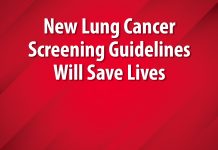Nivolumab in the News
The dosing schedule for nivolumab now includes a flat dose of 480 mg infused every 4 weeks (Q4W) for a majority of approved indications, including patients who received prior therapy for metastatic NSCLC. The U.S. Food and Drug Administration (FDA) approval provides an alternative to the previously available option of 240 mg every 2 weeks (Q2W). The approval also allows for a shorter 30-minute infusion across all approved indications. Nivolumab is now available in a new 240 mg vial.
In addition, the FDA has accepted a Biologics License Application for nivolumab for priority review. The application includes treatment of patients with SCLC who have received two or more prior lines of therapy and whose disease has progressed. The FDA action date is August 16, 2018.
The application submission was based on the safety and efficacy data from the phase I/II CheckMate -032 trial that evaluated nivolumab alone vs. nivolumab plus ipilimumab in advanced or metastatic solid tumors. Of 401 patients, the objective response rate was 11% for patients treated with nivolumab alone and 22% for those treated with the combination. Of the 211 patients with evaluable TMB, objective response rates for the combination vs. nivolumab alone, respectively, were 46% and 21% for those with high TMB, 16% and 7% for those with medium TMB, and 22% and 5% for those with low TMB. Oneyear survival rates for the combination were 62% (high TMB), 20% (medium), and 23% (low); survival at 1 year for nivolumab alone was 35% (high), 26% (medium), and 22% (low). Patients were treated until disease progression or unacceptable toxicity.
Atezolizumab
The FDA has accepted a supplemental Biologics License Application (sBLA) and granted Priority Review for atezolizumab, in combination with bevacizumab, paclitaxel, and carboplatin for the first-line treatment of people with metastatic nonsquamous NSCLC. The FDA is expected to make a final decision regarding approval in early September 2018.

CMS Coverage for Only FDA-Approved NGS Companion Diagnostics
The Centers for Medicare & Medicaid Services (CMS) have finalized a National Coverage Determination (NCD) to cover in-vitro diagnostic next-generation sequencing (NGS) laboratory tests that are U.S. Food and Drug Administration (FDA) approved as companion diagnostics for patients with advanced cancer, defined as recurrent, metastatic, relapsed, refractory, or stage III or IV cancer. This definition was expanded to include relapsed, refractory, and/or stage III after public comments were considered but prior to NCD finalization. This decision also extends to repeat testing when the patient has a new primary diagnosis of cancer.
This decision was made following parallel review with the FDA, which granted its approval of the FoundationOne CDx (F1CDx™) test in November 2017, at which time CMS issued a proposed NCD for NGS cancer diagnostic tests. F1CDx™ can detect mutations in 324 genes and two genomic signatures in any solid tumor. It is also a companion diagnostic for 15 targeted therapies.
Medicare coverage determinations for other NGS diagnostic tests for patients with advanced cancer will be made by local Medicare Administrative Contractors. The final decision also extends coverage to repeat testing when the patient has a new primary diagnosis of cancer.
Regarding existing or developmental diagnostic tests, including laboratorydeveloped tests, that are not FDA approved, the CMS stated in its press release on the NCD decision, “We strongly encourage continuing and publishing the results of these important studies, especially on the endpoints of overall survival, progression-free survival, objective response, and patient-reported outcomes relevant to the quality of life for Medicare benefi ciaries. Th is is not only important to ensure that patients, caregivers, and their providers can make informed decisions, but also to continue to develop and publish results to develop new technologies in the healthcare system.”
The FDA recently released two guidance statements with their recommendations regarding NGS-related testing products. The first guidance provides information about how product developers can use public databases, such as the National Institutes of Health’s ClinGen, to support accuracy of clinical evaluation of their products. The second guidance provides recommendations for designing, developing, and validating NGS-based tests so as to ensure FDA approval. Both documents are available on FDA.gov.
Osimertinib
In late April 2018, the U.S. Food and Drug Administration approved osimertinib in the first-line setting for patients with metastatic NSCLC and either EGFR exon 19 deletions or exon 21 L858R mutations. In addition, a Premarket Approval supplement for the cobas EGFR Mutation Test v2 was granted, allowing the test to be used as a companion diagnostic with osimertinib in the first-line setting. The test was previously FDA approved for use with osimertinib for second-line treatment and beyond for patients with NSCLC who have EGFR exon 19 deletions or L858Rsensitizing mutations.
Approval of osimertinib in the first-line setting was based on the multicenter, international, randomized, double-blind FLAURA trial of 556 patients. All patients had EGFR exon 19 deletions or exon 21 L858R mutations and previously untreated (for advanced disease) unresectable or metastatic NSCLC. The estimated median progression-free survival (PFS) was 18.9 months (95% CI [15.2, 21.4]) in the osimertinib arm and 10.2 months (95% CI [9.6, 11.1]) in the standard-of-care arm, which used either gefitinib or erlotinib (HR 0.46, 95% CI [0.37, 0.57]); p < 0.0001). Confirmed overall response rates were 77% and 69%, and estimated median response durations were 17.6 and 9.6 months, both respectively. At the time of the primary PFS analysis, there were too few deaths to estimate or compare survival outcomes.
Health Canada has approved atezolizumab as a monotherapy for the treatment of adult patients with locally advanced or metastatic NSCLC whose disease has progressed on or after platinum-based chemotherapy—making atezolizumab the only anti–PD-L1 therapy approved in Canada for lung cancer. Approval was based on results from the phase III OAK and the phase II POPLAR studies. The National Institute for Health and Care Excellence in England also recently recommended the drug for patients with advanced NSCLC whose disease has progressed after chemotherapy, regardless of PD-L1 expression status. Roche is providing a confidential discount to National Health Service patients, who can use the therapy for up to 2 years.
Dacomitinib Shows Promise in First-Line Setting
Both the U.S. Food and Drug Administration (FDA) and the European Medicines Agency took steps in early April toward increasing the first-line treatment options for patients with locally advanced or metastatic EGFR-mutated NSCLC based on the results from the phase III ARCHER 1050 study. The FDA recently accepted a New Drug Application from Pfizer Inc. for dacomitinib, a pan-human EGFR TKI, for first-line treatment; priority review was granted. Likewise the European Medicines Agency accepted the Marketing Authorization Application for the same indication.
The study of interest compared dacomitinib (227 patients) with gefitinib (225 patients) and found that patients who received dacomitinib had a progression-free survival of 14.7 months vs. 9.2 months for those treated with gefitinib. This translated to a 41% reduction in risk of disease progression or death for dacomitinib (HR 0.59 95% CI [0.47, 0.74]; p < 0.0001) as fi rst-line therapy in this setting.

Editor’s Note
With the recent approval of osimertinib in the front-line setting in similar patients, based on the very positive results of the FLAURA trial, it is unclear how much uptake there will be for dacomitinib if/when this agent garners approval. –Corey Langer, MD, Editor
Rova-T Enters Phase III Trials after Disappointing Phase II Results
AbbVie will not seek accelerated U.S. Food and Drug Administration (FDA) approval for rovalpituzumab tesirine (Rova-T) in third-line relapsed/refractory (R/R) SCLC. Rova-T is an antibody–drug conjugate that targets the DLL3 protein, expressed in more than 80% of SCLC tumors.1
The step back was a result of the phase II data from TRINITY, a multicenter, open-label, single-arm study of patients whose SCLC tumors expressed DLL3 and who had received at least two prior treatments, including at least one platinumbased regimen. Of 177 patients, the objective response rate for Rova-T (based on RECIST criteria v1.1) was 16%, and overall survival at 1 year was 17.5%.
“We continue to believe Rova-T has potential for patients with small cell lung cancer and other DLL3-expressing cancers,” said Mike Severino, MD, executive vice president of research and development and chief scientific officer for AbbVie in the company’s March press release. “Although the results from the study were not what we hoped for, we look forward to receiving data from the ongoing phase III studies in the first- and second-line settings and remain committed to developing Rova-T for the treatment of patients with small cell lung cancer.”
References
1. ClinicalTrials.gov (2016). Study of Rovalpituzumab Tesirine (SC16LD6.5) for Third-line and Later Treatment of Subjects With Relapsed or Refractory Delta-Like Protein 3-Expressing Small Cell Lung Cancer (TRINITY). Accessed April 11, 2018.











